Let’s Talk About Sex, Baby: A Case for Including Sex in YA Books, a guest post by Anna Gracia
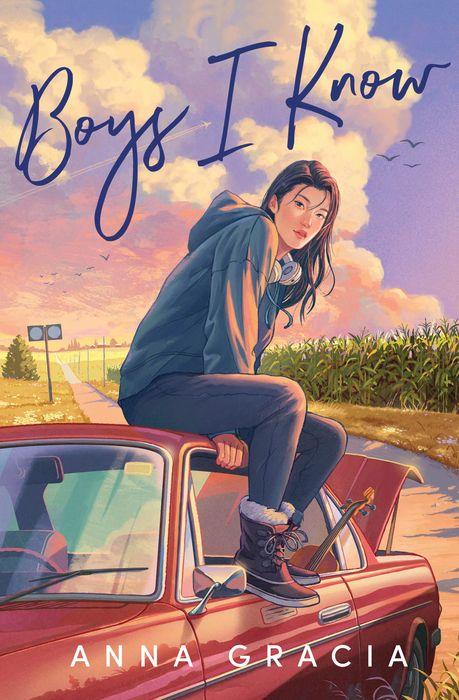
When I was growing up, I thought sex was a bad word, on par with four-letter curse words and other things I wasn’t allowed to say. I clearly remember one day after school in third grade, my two best friends crowded around me, urging me—no, demanding that I say the word aloud, to prove the world wouldn’t come crashing down afterward. After minutes of coaxing and a quick prayer that God wouldn’t somehow punish me for doing it, I whispered it—so quietly no one would have even overheard had they been standing in the hallway.
Sex.
It was never talked about at home, unless it was within the context of how sinful it was unless the couple was first married and even then, it was only for the purposes of conception. One of my mom’s favorite idioms to remind us of this was no one buys the cow if they can get the milk for free. We, women, were the cows, only useful for our body parts.
ADVERTISEMENT
ADVERTISEMENT
My parents believed that the tighter they could hold onto their children—the further away they could keep them from certain…unsettling ideas…the more they could control their decisions; their worldview. We were forced to cover our eyes if anyone on screen kissed during movies or tv shows, my mom using her own hands as reinforcement if it seemed like we might be trying to peek through our fingers. Every boy was treated as suspect, co-ed outings banned until well into my teens.
But when parents are unable to or refuse to have honest conversations with their kids, those kids fill the gaps with what’s around them. Often, that comes in the form of their classmates. The first time someone told me they’d had an abortion was in eighth grade.
Anal sex? Also eighth grade. Sexually transmitted disease? Tenth. Rape? Twelfth.
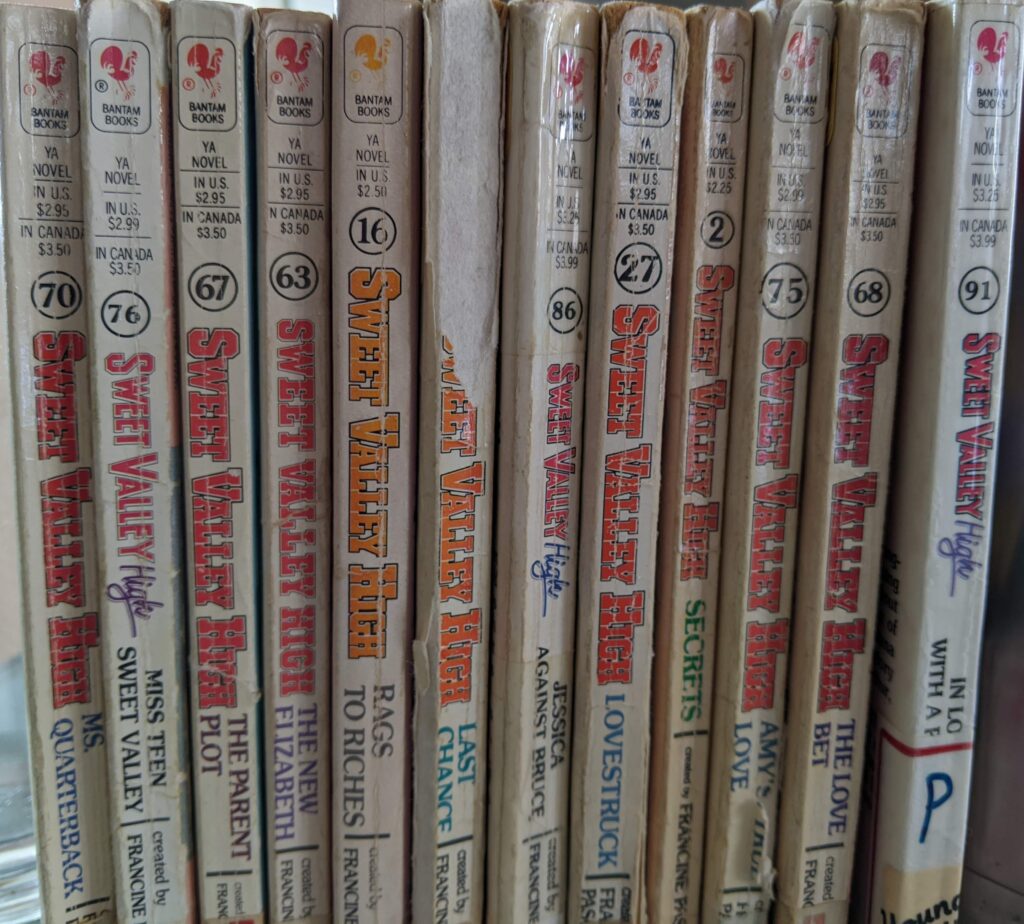
I was lucky in that my state actually provided sex education in school. By the end of high school, I’d been taught the basics of reproduction and that condoms prevented STDs. My parents, preferring to avoid any interaction with the topic whatsoever, had no idea they probably could have pulled me from the class all together. Other kids aren’t so lucky.
As of October 2020, only 30 states and the District of Columbia require that public schools teach sex education and of those, only 22 require that the information provided actually be medically accurate. And despite a 2017 survey by the CDC that reports nearly 40 percent of all high school students as having been sexually active, state legislatures continue their assault on sex education, like Florida’s colloquially named “Don’t Say Gay” bill that bans any mention of sexual orientation or gender identity before fourth grade.
But even school programs have limitations, starting with the fact that fewer than half of high schools and less than a fifth of middle schools teach all 20 topics recommended by the CDC as essential components of sex ed.[1] Quality sexual health education (SHE) as recommended by the CDC includes topics like how to communicate with family and peers about issues that affect health, analyzing media influences, and how to access valid and reliable information and services (such as STD testing). The CDC goes on to say that promoting and implementing well-designed SHE programs results in students who are more likely to delay initiation of sexual intercourse, have fewer sex partners, increase their use of protection, and improve their academic performance. SHE programs can also be scaled to include information on topics like suicide prevention, high-risk substance use, and how to keep students from becoming victims of violence.
So what is a teen to do if they find themselves in one of the 57 percent of high schools that doesn’t teach them all of this?
There is the internet, of course—rife with misinformation and free porn—a 2015 Australian study finding that 80 percent of young men reporting they watched it weekly, with nearly two-thirds of young women consuming it at least monthly. And while many parents would no doubt be stricken to learn their child’s sex education was coming exclusively from pornography, is it any wonder that’s where they end up when other avenues of access to that information is removed?
Kids are hungry for knowledge. But if the knowledge they’re given is false (e.g. sex only “counts” if there is penile penetration) or non-existent (e.g. book bans), they can be left unequipped to make responsible choices about their own bodies. After all, how would you know that contraceptives prevent pregnancy if you haven’t been taught how pregnancy occurs? How would you know the risks of oral or anal sex if you’d never even known they existed?

All around us, sex permeates every inch of our media landscape—from what’s shown on tv shows and movies, to magazines and commercials of all kinds, to the entire fashion industry itself. For example, a Canadian study[2] found that half of print media advertisements portrayed women as sex objects (no such US study was available). If there is no other information or viewpoint to contradict these messages, how can we expect kids to resist internalizing (oftentimes) harmful messaging?
Why should they stop a partner mid-sex if they don’t understand that sex shouldn’t hurt?
Why would they revoke consent if they haven’t been taught that consent is something that is constantly ongoing? That consent exists in both verbal and non-verbal forms?
Why would they worry about AIDS if they’ve only been told it happens to a certain kind of person?
Why should they ever let themselves enjoy sex, even as an adult, if they’ve been told their entire lives that it’s a sin and should only be used to create babies?
Books provide a necessary perspective in this landscape, giving teens another important access point to information they may or may not be getting elsewhere. I, myself, learned about menstruation from Judy Blume’s iconic novel Are You There, God? It’s Me, Margaret when my own parents refused to discuss it with me (not coincidentally, a perennially challenged book).
The fact is, there are kids experiencing all manner of things every single day that some other parent would find “objectionable” or “controversial,” sex being one of the big ones. Whether by choice or by force, those kids deserve to see their experiences reflected and explored. And kids who might never experience it deserve to know that there are kids who do.
Empathy is the bedrock to interpersonal relationships and without knowledge, there can be no empathy. After all, how many people out there changed their stance on same sex marriage after the queer people in their lives came out to them? How can we have any hope for a better, more understanding future if we don’t let kids actually learn about the experiences of those around them?
The stigma of sex never seems to fade, whether it’s shaming young adults for the number of partners they’ve had, the blaming of rape victims, or the criminalization of sex workers. Girls are still mocked for being “teases” or “prudes,” boys judged and assessed by their sexual prowess. Queer sex bans are making a comeback, and asexuality still struggles to find ground as a valid sexual identity in society. If books can make kids feel a little less ashamed of who they are or help them move through the world a little more comfortably, who are we to tell them they don’t deserve it?
Hiding sex from teens simply doesn’t work. Multiple studies have shown abstinence-only programs to be not only ineffective, but also as possibly causing harm to adolescents.[3] In fact, a 2004 report to the US House of Representatives, language in abstinence-based curricula reinforces “gender stereotypes about female passivity and male aggressiveness”—attitudes that often correlate with things like domestic violence, it notes. Sex is a reality of life and our job as parents, piblings, educators, librarians, or even just members of a community, is to help prepare adolescents for adulthood. We cannot do that by lying to them or hiding information from them that will help them grow into healthy, happy, thriving adults.
Books (fiction, especially) cannot, and should not, be the only source of sexual health information for teens. But it is a safe way for teens to explore their sexuality and outcomes of potential choices they might make, especially once we accept that like violent video games, consuming “sexy” content does not make kids start having sex.[4] And while yes, harmful content can still exist in books as easily as it can in other forms of media, it’s the inclusion of more viewpoints that is necessary.
The rise in diversity in publishing, especially from YA authors, means that more people from marginalized communities are being given the opportunity to share their experiences and culture with kids today—experiences that can often cross over into the traditionally “taboo.” For me, personally, I would have loved to read about a sexually active Asian American teenager when I was that age, if for no other reason than to know that they existed.
ADVERTISEMENT
ADVERTISEMENT
Knowing all that we know about human development, the need for connection and information, as well as the importance of representation, the question is not ‘why should we allow sex in young adult books,’ but what possible reason could there be not to?
[1] According to the 2018 CDC School Health Profiles
[2] Seabrook, R. C., Ward, L. M., & Giaccardi, S. (2019). Less than human? Media use, objectification of women, and men’s acceptance of sexual aggression. Psychology of Violence, 9(5)
[3] The Society for Adolescent Health and Medicine (2017). Abstinence-Only-Until-Marriage Policies and Programs: An Updated Position Paper of the Society for Adolescent Health and Medicine. Journal of Adolescent Health, 61(3)
Ott, M., Santelli, J. (2007). Abstinence and abstinence-only education. Current Opinion in Obstetrics and Gynecology, 9(5)
[4] Steinberg, L., & Monahan, K. C. (2011). Adolescents’ exposure to sexy media does not hasten the initiation of sexual intercourse. Developmental Psychology, 47(2)
Meet the author

Anna grew up biracial in the Midwest, spending her formative years repeatedly answering the question “What are you?” Before finding her way as a young adult author, she was a CPA, a public school teacher, a tennis coach, and for one glorious summer, a waitress at a pie shop. She now lives on the West Coast, raising three kids and writing stories about girls navigating a world full of double standards. Her debut novel, Boys I Know, is an Indies Introduce selection as well as an Indie Next pick for July/August 2022. You can find her online at @GrahSeeYa or at her website, anna-gracia.com.
About Boys I Know
A high school senior navigates messy boys and messier relationships in this unflichingly honest and much-needed look into the overlap of Asian American identity and teen sexuality.
“A fresh tale about a teen’s struggles to define herself.” –Kirkus Reviews, Starred Review
June Chu is the “just good enough” girl. Good enough to line the shelves with a slew of third-place trophies and steal secret kisses from her AP Bio partner, Rhys. But not good enough to meet literally any of her Taiwanese mother’s unrelenting expectations or to get Rhys to commit to anything beyond a well-timed joke.
While June’s mother insists she follow in her (perfect) sister’s footsteps and get a (full-ride) violin scholarship to Northwestern (to study pre-med), June doesn’t see the point in trying too hard if she’s destined to fall short anyway. Instead, she focuses her efforts on making her relationship with Rhys “official.” But after her methodically planned, tipsily executed scheme explodes on the level of a nuclear disaster, she flings herself into a new relationship with a guy who’s not allergic to the word girlfriend.
But as the line between sex and love blurs, and pressure to map out her entire future threatens to burst, June will have to decide on whose terms she’s going to live her life—even if it means fraying her relationship with her mother beyond repair.
A modern Judy Blume meets Jenny Han, Boys I Know is a raw and realistic look into the lives of teen girls. June Chu is an authentic if imperfect protagonist, and her journey of self discovery is as uncomfortable as it is cathartic. A Summer/ Fall 2022 Indies Introduce Selection!
ISBN-13: 9781682633717
Publisher: Peachtree Teen
Publication date: 07/26/2022
Age Range: 14 – 17 Years
Filed under: Guest Post
About Amanda MacGregor
Amanda MacGregor works in an elementary library, loves dogs, and can be found on Twitter @CiteSomething.
ADVERTISEMENT
ADVERTISEMENT
SLJ Blog Network
Endangered Series #30: Nancy Drew
Research and Wishes: A Q&A with Nedda Lewers About Daughters of the Lamp
Preview: Archie Jumbo Comics Digest #350
ADVERTISEMENT



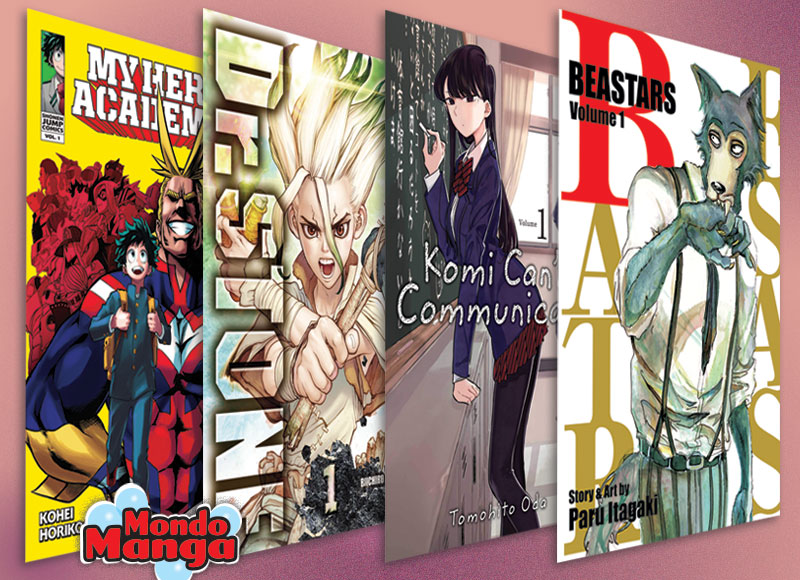
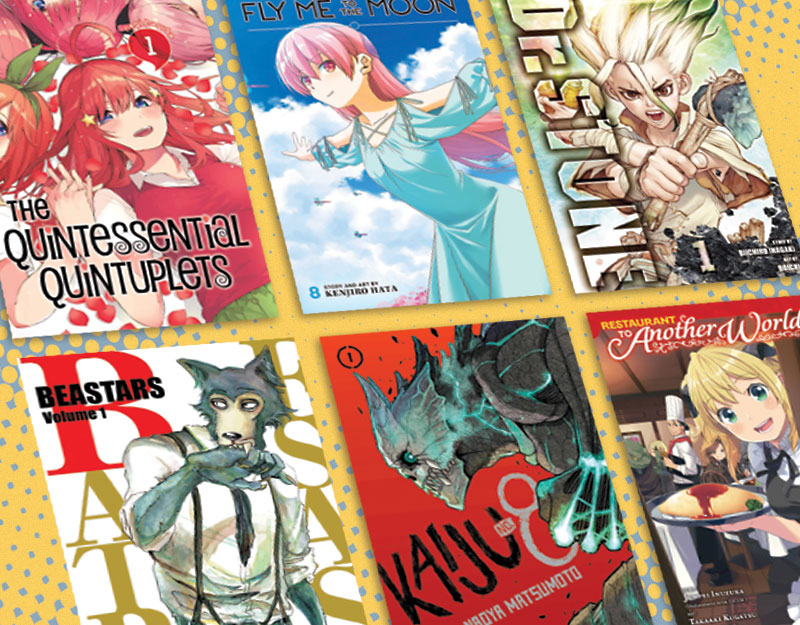
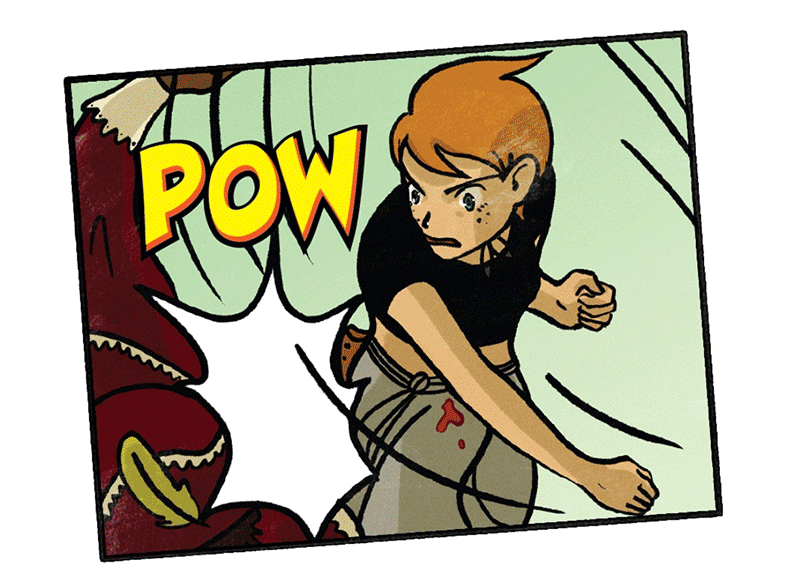
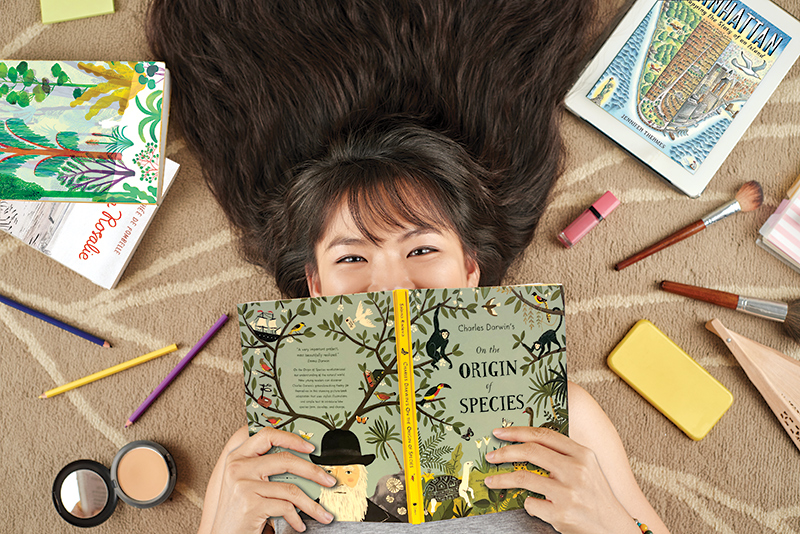
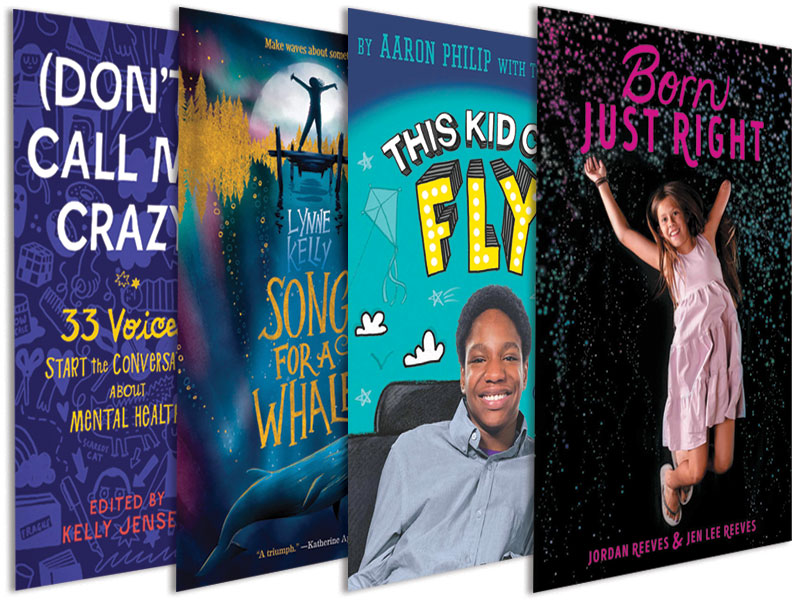
It sounds like Anna’s unhealthy relationship with her parents is framing her worldview and skewing her perspective. Even into her book character’s issues with her mother. She has brought too much of her unhealed past into her line of thinking. Just because her parents didn’t talk with her about sex and help prepare her to navigate the world of healthy relationships doesn’t mean we should throw out all responsibility to parents and leave it to young adult books to teach our kids about sex! Good grief! The character in her book sounds just as lost and sad as she does. Sounds like she still needs some good solid guidance. Let’s teach our parents how to tech their kids about sex, not take away that right from them. Coming from parents in a safe and loving atmosphere is surely guaranteed to be so much healthier and set them up for success than reading some depressing young adult story about a teen girl who has sex and can’t figure out what she wants or who she is and ends up with a myriad of regrets. Young adult books is not the place for a young girl to learn about sex. I’m sorry for Anna that she had a hurtful experience along the way and now has somehow become an expert on it. Sadly, she want shown the way it can and should be done in the context of a healthy and loving home environment. Women are empowered when they have loving and healthy relationships with their fathers that speaks to their worth so they don’t have to find it in one relationship after another…one heartbreak after another. That’s all these young adult books influence is insecurity and heartbreak. I’m sorry that the school library journal promotes this unhealthy way of thinking, especially for our young girls.
Teenagers are going to find out about sex regardless and sex can take many forms. Of course, having an open and communicative relationship with your parents is important, Sally. I think the author of this article would agree with you but not everyone has such open dialogue at home. Surely we can agree that the sex portrayed in YA is a far better place for teens to be learning about the topic than pornography? But yes, ultimately parents need to learn to be open and schools need to be able to inform as well. Do I think YA novels should have sex, yes! YA novels should reflect reality and that is the reality teens are dealing with. To pretend teens are living a sexless existence is delusional and harmful.